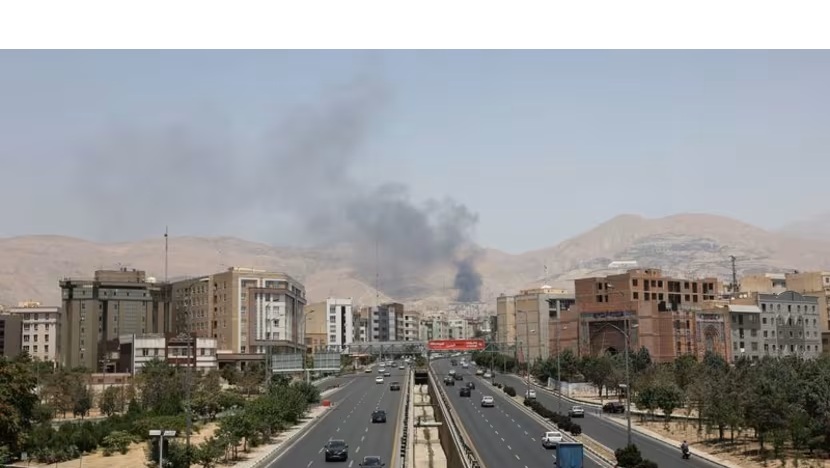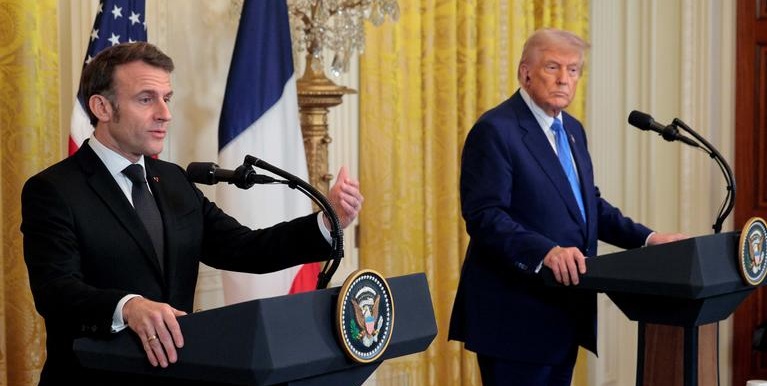News
Pakistan closes doors to Iran: The real reason – symbolism or strategy?

Amid a rapidly intensifying Israel–Iran conflict, Pakistan took a decisive yet widely misunderstood—step, on June 16, 2025: sealing parts of its porous, 560-mile border with Iran.
Online media sources report that this came amid escalating tensions between Iran and Israel.
The closure was described as indefinite and applied to all border crossings in Balochistan province, including Taftan, Panjgur, Kech, Washuk, and Gwadar.
Pakistani authorities cited security concerns, including the risk of militant infiltration and regional instability, as the primary reasons for the decision.
While the move sparked speculation about Islamabad’s geopolitical leanings, especially in a polarized Middle East, Pakistani authorities have made it clear: this is not a political realignment.
It is a security-first strategy supposedly designed to shield the country from potential cross-border chaos, insurgent infiltration, and regional blowback.
From militant threats in Balochistan to risks facing critical infrastructure like the China–Pakistan Economic Corridor (CPEC) and the Iran–Pakistan gas pipeline, the closure reflects growing fears that instability in Iran could easily spill across the border.
It also underscores Pakistan’s need to balance its deep-rooted solidarity with Palestine and caution toward Iran’s retaliatory actions.
These are all without inflaming tensions with key partners or provoking domestic unrest.
This explainer unpacks the real motivations behind the closure, the risks Pakistan is trying to mitigate, and the wider implications for Iran, the region, and the global community.
Why Pakistan Sealed Its Iran Border
1. Preventing Militant Infiltration
Pakistan shares a 560-mile rugged border with Iran that includes regions plagued by unrest.
With Israel’s military strikes on Iran, Islamabad feared that these could destabilize Iranian border areas, creating a vacuum exploited by militant groups.
Reports highlight risks from Jaish al‑Adl, a Sunni-Baluch insurgent group active in both countries, as well as separatist movements in Balochistan, Pakistan
Pakistan’s Army Chief Asim Munir reportedly emphasized these dangers during a White House meeting, underscoring fears that weak border control could enable militancy to spread into Pakistani territory .
2. Responding to Escalating Regional Tensions
The border closure responds to Iran’s recent retaliation against Israel, acknowledged to have targeted militant bases and security interests.
Islamabad fears this destabilization may spill across the border, especially given past tit-for-tat violence: Iran has previously conducted missile and drone strikes inside Pakistan targeting militant bases, prompting military retaliation from Pakistan .
3. Securing Critical Infrastructure
The border regions are strategically important for Pakistan’s security and economy.
This includes vital energy links like the Iran-Pakistan gas pipeline and the China‑Pakistan Economic Corridor (CPEC) centered on Gwadar port.
Instability could threaten these initiatives and also affect Chinese investments
4. Targeted, Not Permanent
This closure is a temporary, security-based measure, not a permanent diplomatic cutoff.
Officials clarified that Pakistani citizens in Iran will still be allowed to return, but new entries are suspended
Similarly, Iran temporarily closed its side, signaling coordinated, safety-driven steps .
Broader Implications
Regional Security Dynamics
This reinforces how unrest in one country can trigger cross-border effects in a fragile region.
With militant groups exploiting turmoil, increased vigilance and border security are vital.
Pakistan–Iran Cooperation or Strain?
Despite shared concerns, historical tensions over cross-border militancy persist, making cooperation challenging.
Both sides have previously accused each other of harboring insurgents
Economic Fallout
Local trade has been hard hit.
Before the closure, congestion was already causing massive delays—600 trucks stalled, with traders protesting livelihood losses
Long-term closures would deepen economic damage to border communities.
Infrastructure Vulnerability
The safety of major projects like CPEC and the IP gas pipeline depends on stable border areas.
Prolonged disruption could jeopardize these critical developments.
Global Investment Risks
Rising instability threatens to deter foreign investments and may raise concerns for global partners of Pakistan and Iran, including China.
Insight in Summary
Why shut it now?
To preempt militant spillover and protect national security, amidst heightened regional turmoil following Israel’s strikes.
Is it permanent?
No, it is a temporary security measure, aimed at coordination and threat containment, not a diplomatic severance.
Who else is affected?
Border traders, energy projects, and global investors—all face disruption if instability persists.
Final Takeaway
This border closure is a security-driven maneuver by Pakistan, not a foreign policy statement.
Faced with potential militant invasions and regional turmoil, Islamabad chose to safeguard its frontier, protect economic interests, and ensure internal stability, while remaining ready to reopen once the immediate threat subsides.
It is very important to note that the Pakistan’s border closure with Iran does not imply support for Israel in the ongoing Israel–Iran conflict.
Here is a clear breakdown of what the border closure does and does not mean:
What the Border Closure Means:
Security Precaution — Not Political Alignment
Pakistan shut its border with Iran primarily as a security measure, to prevent the spillover of violence and militant infiltration following Israel’s attacks on Iranian territory.
Groups like Jaish al-Adl and Baloch insurgents operate in the Iran–Pakistan border region, and Islamabad fears that instability in Iran could embolden cross-border threats.
Internal Stability First
With unrest in Balochistan and recent cross-border strikes from both sides earlier this year, Pakistan’s priority is preventing chaos on its western frontier—not taking sides in a geopolitical rivalry.
Temporary, Not a Political Statement
The closure is limited and administrative. Pakistani citizens in Iran are still being allowed to return.
There is no indication that Pakistan is downgrading ties with Iran or siding with Israel diplomatically or militarily.
What the Border Closure Does Not Mean:
No Military or Strategic Support for Israel
Pakistan has no diplomatic relations with Israel, has never recognized it as a state, and maintains a firm pro-Palestinian stance.
The country has strongly condemned Israeli military actions in Gaza and against Iran.
No Diplomatic Shift Toward Israel
Islamabad continues to publicly support the creation of a Palestinian state with East Jerusalem as its capital.
The border move was not accompanied by any change in diplomatic recognition or posture toward Israel.
Not Part of Any U.S.-Israeli Axis
Pakistan has not joined any bloc aligned with U.S.-Israeli military operations.
In fact, it has maintained non-alignment in the direct Israel–Iran conflict, even as it takes steps to secure its own borders.
Bottom Line
Pakistan’s border closure with Iran is about preventing regional instability from affecting its territory, not about taking sides in the Israel–Iran conflict.
It does not signal support for Israel, nor does it weaken Pakistan’s solidarity with the Palestinian cause.
Rather, it’s a neutral, protective move in a volatile regional environment.
Implication of the border closure for Israel and the global community
Pakistan’s closure of its border with Iran, amid the escalating Israel–Iran conflict, has significant implications for Pakistan itself, the region, and the broader international community.
While primarily a security measure, it creates ripple effects across diplomacy, trade, energy security, and regional stability.
Implications for Pakistan
1. Heightened Security Concerns
Militant Threats: Pakistan’s western border with Iran, especially in Balochistan, is a known hotspot for insurgent groups like Jaish al-Adl and the Balochistan Liberation Army (BLA).
Cross-Border Infiltration Risk: With Iran potentially destabilized by Israeli attacks, Pakistan fears militants could exploit ungoverned spaces for operations inside its territory.
Internal Strain: Balochistan is already Pakistan’s most restive province. The border closure may aggravate ethnic tensions and increase anti-government sentiment.
2. Economic Disruption
Border Trade Halted: The Taftan crossing is vital for small-scale traders and fuel smugglers. Closure affects daily commerce and raises prices of goods like fuel, food, and medicine in border towns.
Pressure on Informal Economy: Many communities rely on cross-border black markets. Their closure disrupts livelihoods, potentially fueling unrest or illegal activity.
3. Energy and Infrastructure Delays
Impact on the Iran-Pakistan Gas Pipeline: The IP pipeline, already delayed due to U.S. sanctions, could face further setbacks amid strained border logistics and rising regional tensions.
Fuel Shortages: Iran supplies cheap fuel to border areas—closure means supply gaps and higher domestic fuel demand.
4. Diplomatic Balancing Act
Risk of Iran Friction: Although both oppose Israeli aggression, unilateral closures may irritate Tehran. Pakistan must now manage its relationship carefully to avoid straining economic and security cooperation.
Domestic Narrative: The government must balance national security needs with growing public solidarity for Iran and Palestine, especially during mass protests against Israel.
Implications for the Global Community
1. Regional Stability Risks
Destabilization Chain Reaction: The Iran–Pakistan border is part of a broader arc of instability—from Gaza to Syria to Afghanistan.
Escalation could trigger refugee flows, militant regrouping, or border skirmishes affecting neighboring countries.
Proxy Warfare Hotspots: Militias like Hezbollah and regional actors could exploit any cross-border chaos, creating new battlegrounds in South Asia.
2. China’s Investment Concerns
CPEC Vulnerability: The China–Pakistan Economic Corridor (CPEC), a flagship Belt and Road project, runs through Balochistan.
Rising insecurity and border instability threaten Chinese infrastructure and personnel, potentially slowing down billions in investment.
Gwadar Port Exposure: Increased unrest in the province could directly affect operations at Gwadar Port, a critical node in China’s maritime trade strategy.
3. Strain on Humanitarian Channels
Disrupted Cross-Border Access: Aid movements, medical evacuations, and refugee management become more complicated with the closure of official crossing points.
Evacuation Delays: Foreign nationals (e.g. Afghan, Iranian, or dual citizens) trying to flee conflict areas could face bottlenecks, complicating international evacuation logistics.
4. Geopolitical Signaling
Symbolic Non-Alignment: While Pakistan hasn’t backed Iran militarily, its closure sends a subtle message—it does not support Israeli aggression, but also won’t risk internal collapse by blindly siding with Iran.
Soft Power Messaging: Pakistan’s stance aligns with other Muslim-majority countries like Turkey, Bangladesh, and Malaysia, reinforcing a collective Global South identity opposing Western-aligned policies in the Middle East.
Outlook
In the short term, observers believe Pakistan’s move is a pragmatic security step.
But if the Israel–Iran conflict intensifies, Pakistan may be forced to pick clearer sides.
For now, Islamabad walks a tightrope—managing borders to keep violence out, while signaling solidarity with Iran and Palestine, but without inviting global fallout or internal unrest.
How long this balance holds depends on regional military developments, diplomatic progress in Geneva, and Pakistan’s own ability to contain instability along its western flank.
For Diaspora Digital Media Updates click on Whatsapp, or Telegram. For eyewitness accounts/ reports/ articles, write to: citizenreports@diasporadigitalmedia.com. Follow us on X (Fomerly Twitter) or Facebook










